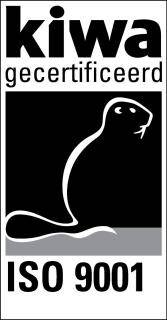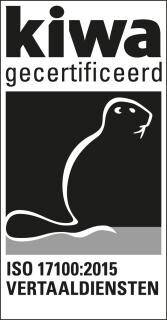
Proverbs and sayings; to translate or not?
Can't see the forest for the trees, promise is debt, two dogs fight for a bone, and a third runs away with it…. Our language is full of proverbs and sayings. And this is just not the case in Dutch, but in all languages. Every proverb or saying has its own story: as wisdom from the Bible, as a saying from the Middle Ages or as a proverb from more modern times. But they also brighten up the language, because without expressions, advertising and marketing texts, presentations and blogs would be a lot more boring.
But as entertaining as proverbs and sayings may be, if you have to translate these expressions into another language, problems arise. Is a literal translation possible? Or is a proverb not known at all in another language and you simply can’t translate it at all? This blog explains how to deal with proverbs and sayings. There are several options, but you have to go for the right choice, because you’re really going to look like a fool if there’s no rhyme or reason to the translation.
Request a quote Request a free trial translation
Be careful with literal translations
There are international proverbs, which are widely known and appear in many languages. A literal translation is often possible in those cases, although the sentence structure may be different. A good example of this is the Dutch expression ‘Wie het laatst lacht, lacht het best’. In English we know this as ‘He who laughs last, laughs best’, in German ‘Wer zuletzt laughs, lacht am besten’ and in Spanish ‘El que ríe último, rie mejor’. The saying can be seen as part of the Christian tradition, which is reflected in the saying ‘The last shall be the first’ which has its origins in the Bible.
Slightly more recent expressions also appear in several languages. In 1748, for example, Benjamin Franklin, American politician and scientist, penned the well-known expression: ‘Time is money’. You will also find this statement in Dutch (‘tijd is geld’), German (‘Zeit ist Geld’) and in Spanish (‘El tiempo es oro’). Although: ‘El tiempo es oro’ literally translated means ‘Time is gold’, which sounds strange to us. A faithful translation therefore applies in German and Dutch, but not in Spanish. Be careful!
Other countries, different expressions
There are other examples of proverbs that are slightly different from the literal translation. In the Netherlands ‘valt het kwartje’ (25 cents of a guilder), in Germany ‘fällt der Groschen’ (10 Pfennig of the Mark), in English, it’s ‘the penny drops’ and in Spanish, you say ‘me cayó el veinte’ (a coin that was mainly used in telephone booths). So each language uses a different coin of an old currency and that has to be translated correctly. Even though it is clear what is meant, it is annoying if the expression is incorrect and readers or listeners are preoccupied with that instead of the subject.
To omit or explain?
Of course, there are also expressions in Dutch that are completely unknown abroad. How do you deal with that? As an example, let’s take ‘Uurtje factuurtje’, which is known for its rhyme. But the rhyme is lost when literally translating the words ‘uurtje’ and ‘factuurtje’, and so does the charm. Giving a brief explanation is an alternative, but it must be short, powerful, with the right wording and adapted to the context and target group. Omitting it completely is theoretically also an option, but expressions often make texts and presentations more lively. It would be a shame to ignore an expression altogether, but sometimes it’s the only option you have.
It’s no shame if you don’t know about foreign expressions. AgroLingua is the right place for well-formulated proverbs and sayings. AgroLingua uses native speakers, who know their language inside-out and who always use the correct wording.
Use the translators at AgroLingua for your translations
After all, it is important that everything is translated correctly. We specialise in translations for the agricultural, horticultural, livestock, food, and related sectors. And we always consider the specific terminology used in various languages.
Are you curious about our translation services and what we can do for you? Please contact us for more information.
Back to blogs





